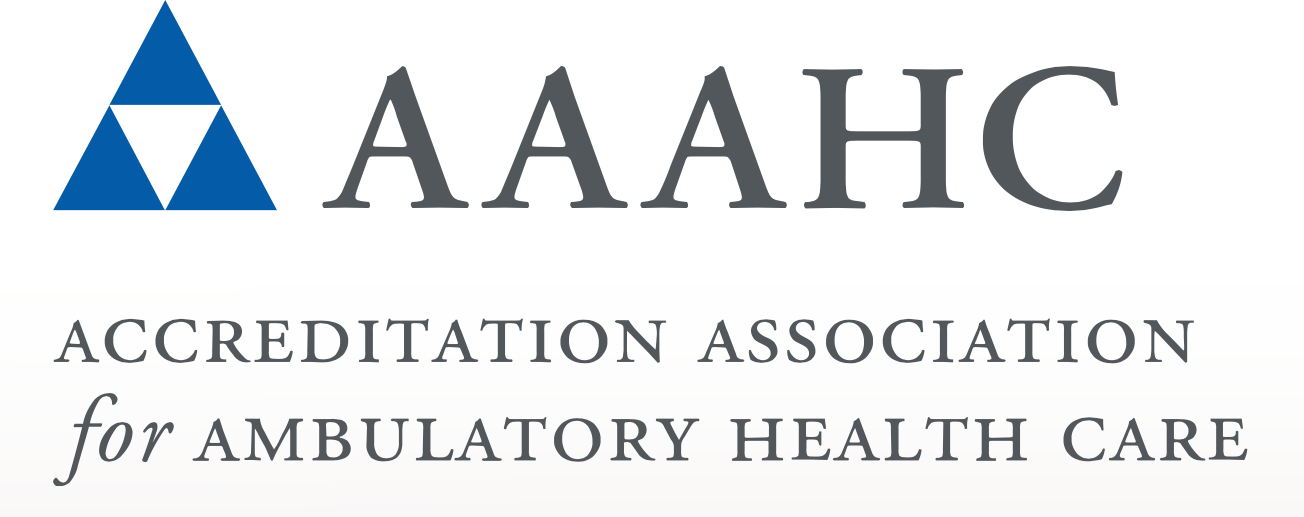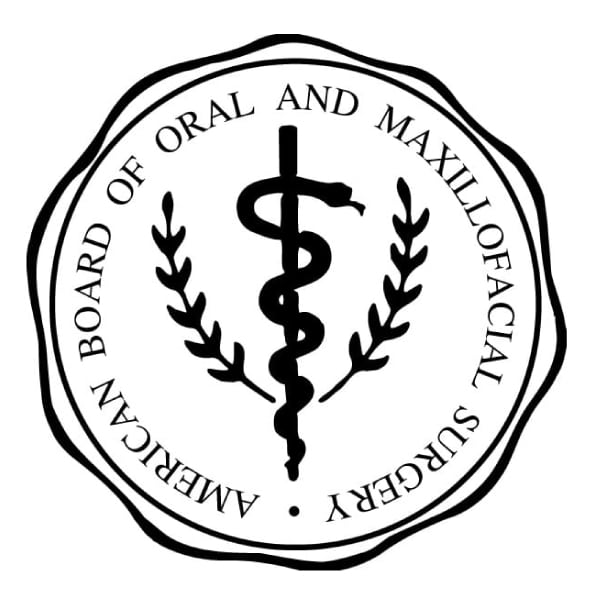Oral and maxillofacial surgeons are the surgical specialists of the dental profession. In many ways oral and maxillofacial surgery is a hybrid of medicine and dentistry.
Oral and maxillofacial surgeons are the surgical specialists of the dental profession. In many ways oral and maxillofacial surgery is a hybrid of medicine and dentistry.
Oral and maxillofacial surgeons treat patients with problems related to wisdom teeth, facial pain, and misaligned jaws. They are expert dental implant surgeons. They treat accident victims with facial injuries and care for patients with oral cancer, tumors, and cysts of the jaws and face. Additionally, many oral and maxillofacial surgeons perform cosmetic facial surgery. Advanced training in anesthesia allows them to provide quality care with maximum patient comfort and safety in the office setting.
Their education requires completion of a four to six year surgical residency that specifically trains them to diagnose and treat the conditions, defects, and injuries of the mouth, teeth, jaws, and face. Oral and maxillofacial surgery residents spend a significant amount of time rotating through related fields such as internal medicine, general surgery, otolaryngology, plastic surgery, and emergency medicine. The oral and maxillofacial surgery residency enables oral and maxillofacial surgeons to perform a wide variety of procedures in the office or hospital setting.
Their residencies also incorporate extensive training in anesthesia. This includes training in the administration of local anesthesia, nitrous oxide, intravenous sedation, and general anesthesia; allowing the surgeon to competently and safely administer the appropriate treatment for each patient. Office-based surgery is often the most efficient and cost-effective way to perform many procedures while providing optimum patient comfort and safety.
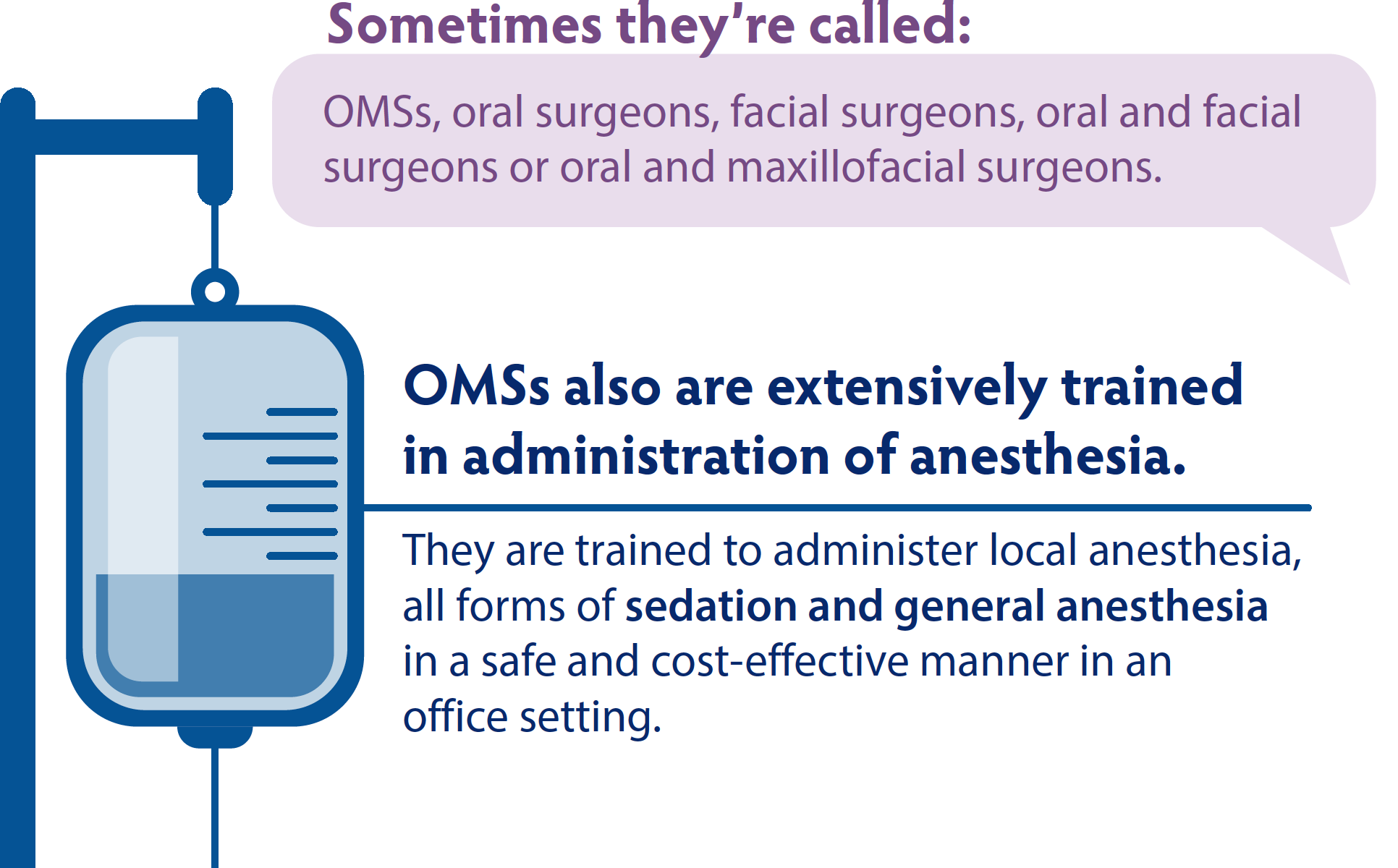
Some conditions and symptoms commonly treated by oral and maxillofacial surgeons are:
|
Oral and maxillofacial surgeons are trained to perform the following treatments and procedures, among others:
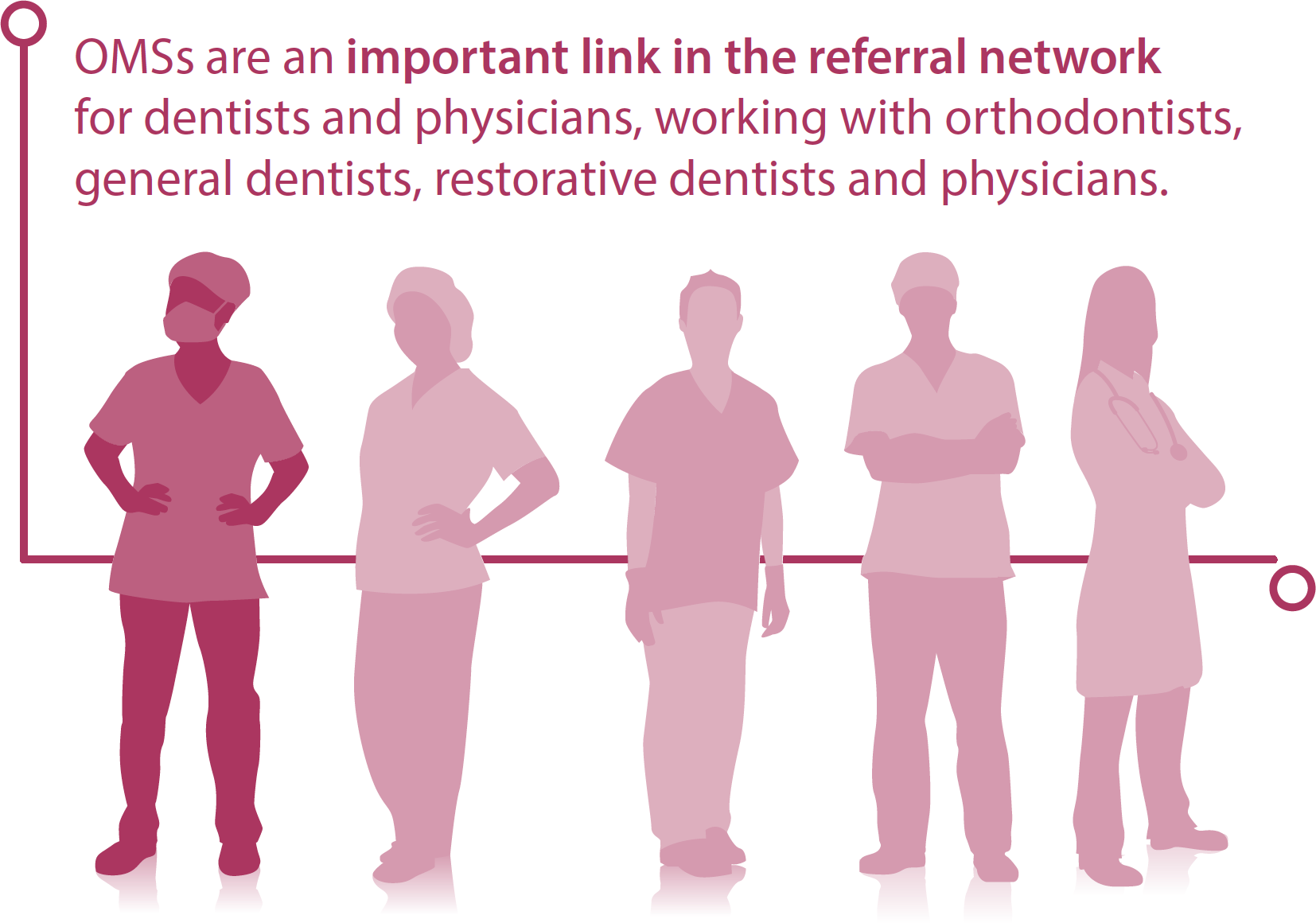
Oral and maxillofacial surgeons are trained to perform the following treatments and procedures, among others:
- Reconstructive surgery to address hard and soft tissue injuries in the upper and lower jaws resulting from trauma, tumor surgery, or long-term denture wear.
- Dental implants to replace a single tooth, several teeth, or an entire dentition.
- Diagnosis and treatment of infections in the maxillofacial region, which can become life-threatening emergencies if not treated promptly and effectively.
- Treatment and repair of injuries to the face, jaws, mouth, and teeth. Oral and maxillofacial surgeons are experts in treating trauma, including fractures of the upper and lower jaws and orbits and the cosmetic management of facial lacerations.
- Surgical correction of oral and facial deformities caused by differences in skeletal growth and congenital deformities, such as cleft lip and palate.
- Cosmetic facial procedures on an outpatient basis.
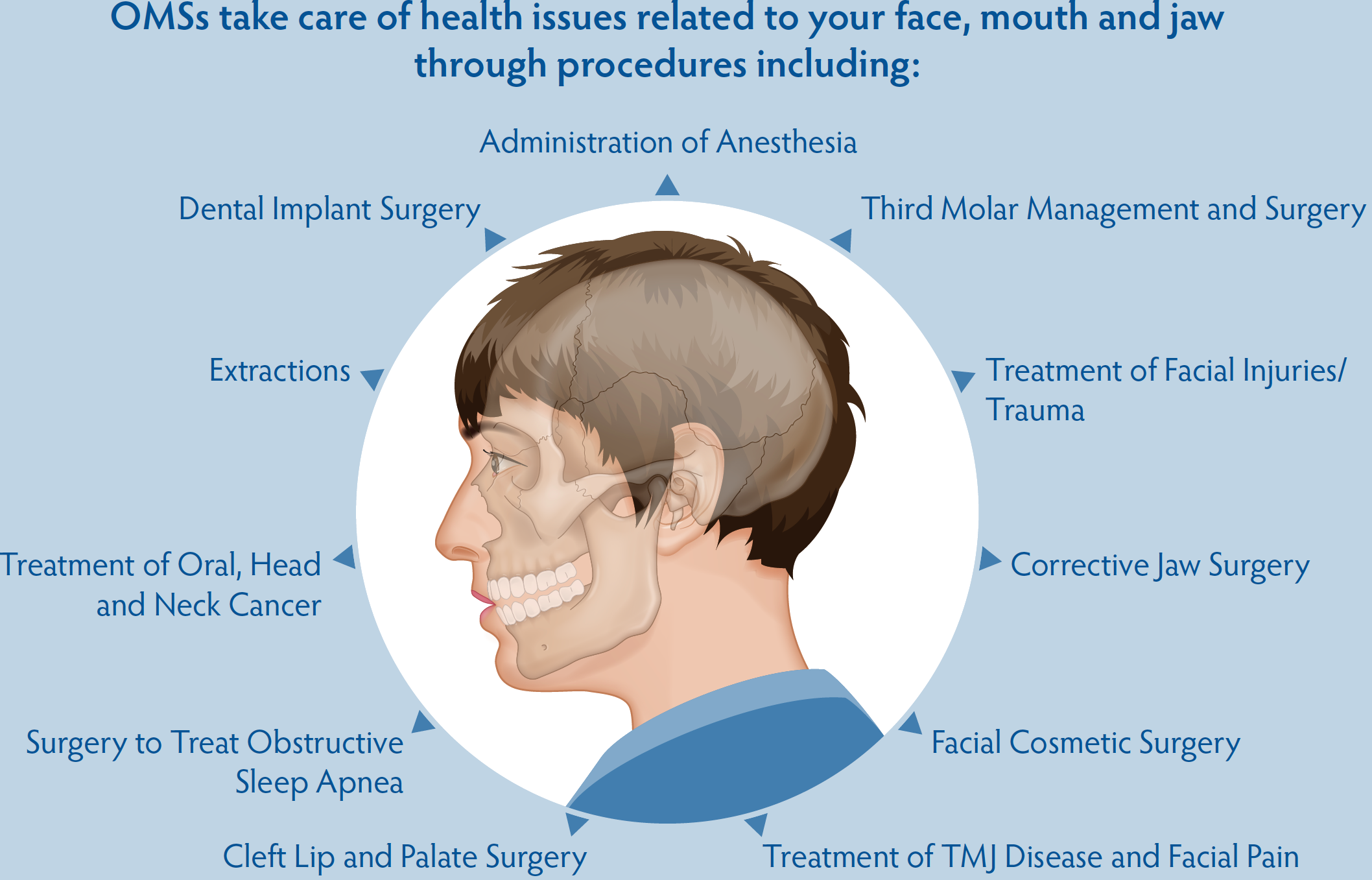
Material on this page is reprinted with permission from the American Association of Oral and Maxillofacial Surgeons.


